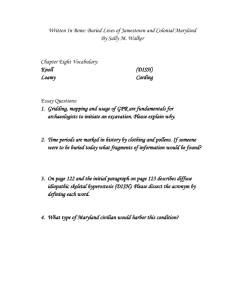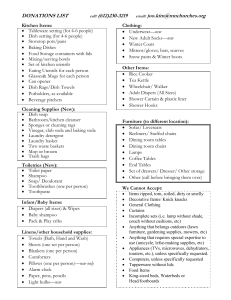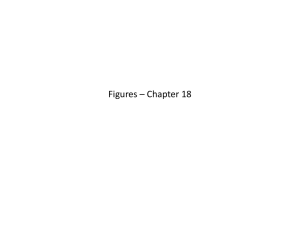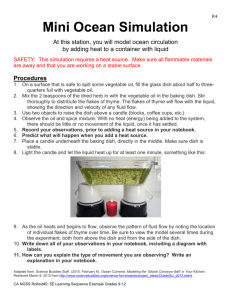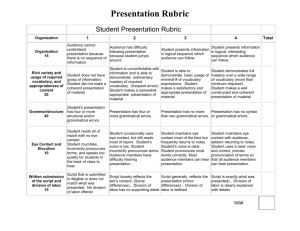Decomposition of Malachite
advertisement
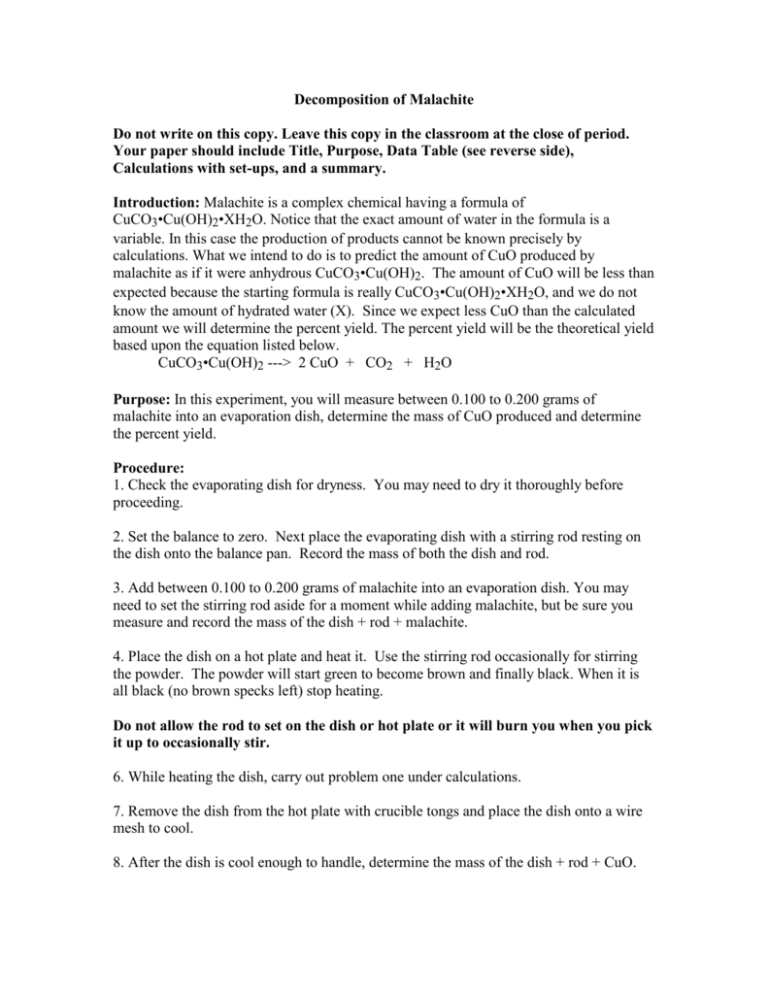
Decomposition of Malachite Do not write on this copy. Leave this copy in the classroom at the close of period. Your paper should include Title, Purpose, Data Table (see reverse side), Calculations with set-ups, and a summary. Introduction: Malachite is a complex chemical having a formula of CuCO3•Cu(OH)2•XH2O. Notice that the exact amount of water in the formula is a variable. In this case the production of products cannot be known precisely by calculations. What we intend to do is to predict the amount of CuO produced by malachite as if it were anhydrous CuCO3•Cu(OH)2. The amount of CuO will be less than expected because the starting formula is really CuCO3•Cu(OH)2•XH2O, and we do not know the amount of hydrated water (X). Since we expect less CuO than the calculated amount we will determine the percent yield. The percent yield will be the theoretical yield based upon the equation listed below. CuCO3•Cu(OH)2 ---> 2 CuO + CO2 + H2O Purpose: In this experiment, you will measure between 0.100 to 0.200 grams of malachite into an evaporation dish, determine the mass of CuO produced and determine the percent yield. Procedure: 1. Check the evaporating dish for dryness. You may need to dry it thoroughly before proceeding. 2. Set the balance to zero. Next place the evaporating dish with a stirring rod resting on the dish onto the balance pan. Record the mass of both the dish and rod. 3. Add between 0.100 to 0.200 grams of malachite into an evaporation dish. You may need to set the stirring rod aside for a moment while adding malachite, but be sure you measure and record the mass of the dish + rod + malachite. 4. Place the dish on a hot plate and heat it. Use the stirring rod occasionally for stirring the powder. The powder will start green to become brown and finally black. When it is all black (no brown specks left) stop heating. Do not allow the rod to set on the dish or hot plate or it will burn you when you pick it up to occasionally stir. 6. While heating the dish, carry out problem one under calculations. 7. Remove the dish from the hot plate with crucible tongs and place the dish onto a wire mesh to cool. 8. After the dish is cool enough to handle, determine the mass of the dish + rod + CuO. Table: Dish + Rod + malachite Empty Dish + Rod Dish + Rod + CuO ________________g ________________g ________________g Calculations: 1. Using your measured amount of malachite, CuCO3•Cu(OH)2, determine the grams of CuO expected. CuCO3•Cu(OH)2 ---> 2 CuO + CO2 + H2O 2. What is meant by theoretical yield? 3. What was the actual yield? 4. Determine the percent yield. Theoretical %yield x100 actual 5. Based upon the amount of CuO produced, how many grams of H2O CO2 were also produced? 6. Based upon the amount of CuO produced, how many grams of CO2 were also produced? 7. At STP how many liters of CO2 are produced? 8. Assume the pressure is 735 mmHg and the room temperature is 25°C, what is the volume of CO2 produced? Write a Summary:
